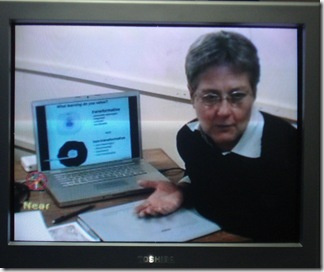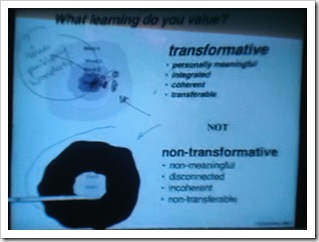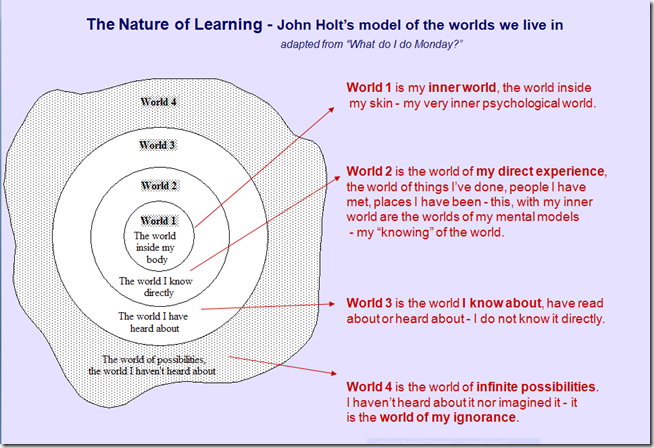 I joined an excellent PD session with Julia Atkins and others around the country about focusing on Key Competencies in the Learning Areas. It was disappointing that noone from any of our cluster schools could find the time to attend this session - they missed a great learning opportunity. This session was recorded so i will download it & extract some of the key points for sharing with my colleagues. The following are some notes from the session:
I joined an excellent PD session with Julia Atkins and others around the country about focusing on Key Competencies in the Learning Areas. It was disappointing that noone from any of our cluster schools could find the time to attend this session - they missed a great learning opportunity. This session was recorded so i will download it & extract some of the key points for sharing with my colleagues. The following are some notes from the session:
We began with a discussion on how the curriculum has evolved over the last 120 years. How it has continually expanded & expanded with new subjects as different things have become important over the years. We haven't changed the curriculum in all this time except to add more things. Now to make this more manageable we have created Key Learning Areas so we can group all these subjects. While we try to make sense of all of this the important thing to think about is "What is the educative purpose of school?" What is Essential Learning - Development of self & self for society.
The Integration of Key Learning Areas, Values & Key Competencies - this will help us achieve our educative process.
Questions:
How do we do this?
How do we develop 21st Century teachers from Industrialised Ages teachers?
How do we maintain the love of learning that our students come to school with at age 5?
How do we counter the challenges of assessment driven learning with the high stakes assessments of NCEA?
Bringing our Teachers Onboard - Professional Learning
Keep the focus on the learning needs of the students themselves, teachers work collaboratively (PLGs) in improving their practice.
Reframing teachers notions about their own learning before you can they can do that for their students.
Phases of development:
Tacit knowledge (don't engage, succeed with kids by chance)
Explicit knowledge - (they gain some understanding, are more open to learning)
Then can get stuck in the 'guru loop' - looking out to others to tell them what to do
Need to internalise their thinking and look to themselves than thinking an outside factor will change things.
Inspirational videos to get people to open up their minds (have used a few of these before ;-):
When I Become a Teacher....
Pay Attention
Shift Happens
John Holts Model of the worlds we live in - the Nature of Learning:
4 Worlds from our most inner, to the world around us that we have experienced first hand, to the world which we know about but haven't experienced, and then the possible world which is a big unknown.
We develop our own mental models and they don't change until they are confronted.
Julia Atkins "Teaching for Effective Learning" presentation.
Current mental models in education - 'Teaching as telling & learning as listening' (Yoram Harpez) emphasis on World 3 stuff - knowing about. "Chewing & spewing"
Important to do the experiential learning - need to engage them in developing and knowing.

What Learning Do You Value?
In the top model learning starts at the centre and across the worlds, the model below is World 3 learning.
A process to change: Help develop shared mental models of the skills & attributes we want for our students - develop ownership from all - staff, community - use the curriculum document as reference point.
What learning experiences will they need? What are we doing well? What do we need to change? Develop a learning model for your school?


1 comment:
Hmmmmm blocked through SZ? - can u see any Youtube videos direct from the site? Maybe you need flash installing? Working at this end & in some other schools.....
Post a Comment